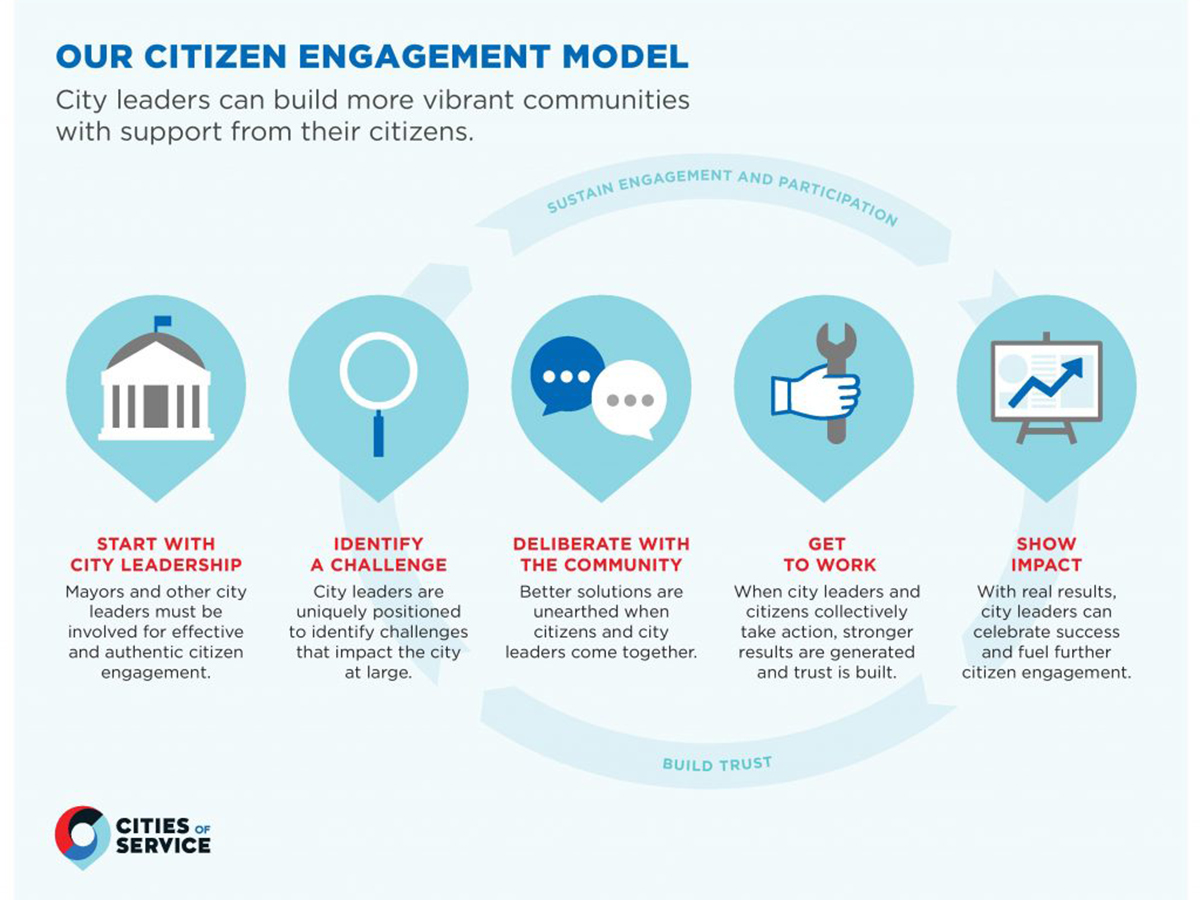Our Model
Using our citizen engagement model, Cities of Service coalition cities partner with local residents, city agencies, and community organizations to identify priority challenges that can be addressed with help from citizens. After deliberating with the community, city leaders and citizens come together to take action. Their combined efforts generate strong results and build trust between citizens and city leaders, which encourages and sustains future engagement.
Cities of Service provides several key resources to cities to help them achieve results:
- Technical Assistance & Coaching
- Grant Programs & Funding Opportunities
- Active Peer Network
- National Exposure
- Resource Library
- Recruitment Pipeline
- Connections to Corporate Partners & National Nonprofits
City leaders leverage citizens to improve their cities in a variety of ways. Here are a few examples:
In Lansing, Michigan the Love Your Block AmeriCorps VISTA members conducted outreach to citizens, engaging them in community tours and photo journalism activities that brought problems, and solutions, to light. This outreach led to a grant workshop hosted by the city, which resulted in 19 mini-grant applications from different neighborhood groups and seven selected grantees. As of June 2016, these seven projects had removed nearly 100 bags of litter, created 14 art displays, and cleaned 12 parks and seven lots.
In recovery from devastating floods in May 2010, Nashville, Tennessee identified ways to reduce the impact of future flooding, strengthen the city’s stormwater management system, and prepare to be more resilient in the face of future natural disasters. Through the Storm Busters Impact Volunteering initiative, spearheaded by Nashville Mayor Karl Dean, citizen volunteers planted roughly 16,000 trees and 320 rain gardens across the city, mitigating over 13 million gallons of stormwater. Thousands of volunteers cleaned 30 miles of waterways, removing nearly 300 tons of trash and debris.
In Philadelphia, Pennsylvania, Waste Watchers citizen volunteers make large public events more sustainable by helping attendees separate their waste into trash, recycling, and compost receptacles. Waste Watchers helped the Philadelphia Marathon reach 90 percent waste diversion, a new record and the widely accepted definition of “zero waste.”
Flint, Michigan launched a comprehensive master planning process, which included a critical data collection component called Your Neighborhood Inventory. With training, materials, and support provided by the city, citizen volunteer groups assessed the physical condition of every commercial property and over 20,000 residential properties, and the functioning of nearly 11,500 streetlights in the city. The data collected through Your Neighborhood Inventory inspired and informed countless projects, including a $24 million grant-funded undertaking to demolish more than 1,800 dangerous and abandoned structures.

